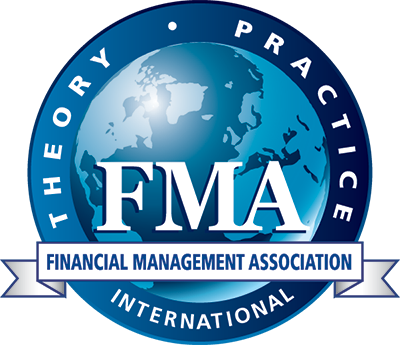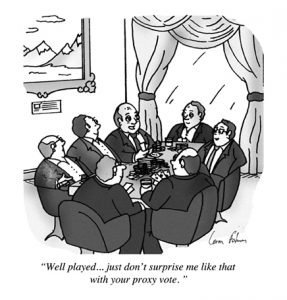TBS Education’s Inspiring Guest project is in the spotlight for its innovative approach to teaching finance. After winning the Best Session Award at the AOM Teaching and Learning Conference and the Best Innovation Strategy Award from AMBA, it has been awarded the FMA Innovation in Teaching Award!

2021 FMA Innovation in Teaching Award

The Financial Management Association International‘s (FMA) Innovation in Teaching Award was created to recognize inspiring educators, improve the quality and relevance of education in finance and spread successful innovative practices. This international competition is open to any educator who teaches undergraduate or graduate students in finance.
The finalists are selected by a committee based on 3 criterias:
- Innovation
- Broad transferability of the teaching technique in terms of resources and instructor skills/connections
- Measurable impact on students, institutions of higher education, and the finance profession
David Stolin, co-founder of TBS Education’s Inspiring Guest program with Elie Gray, received the 1st prize for their project “Teaching finance through short humorous videos made in collaboration with a comedian”.
Injecting humor into teaching finance
TBS Education is constantly exploring unconventional teaching methods, favoring pedagogical innovation for the benefit of its students. The Business School offers a wide range of technics to acquire knowledge and prepare for the business world. By offering an innovative approach to teaching, we capture students’ attention, make the content more memorable and develop their agility.
The first edition of Inspiring Guest project is developed around educational videos staring the Californian comedian Sammy Obeid. Not only the stand-up comedian is the host of “100 Humans” on Netflix but he is also a UC Berkeley Math & Business graduate.
The success of this first edition exceeded the expectations of the pedagogical team. Fully satisfied with the outcome, the Business School is currently preparing a new exciting edition of TBS Inspiring Guest.
Before giving fund managers credit for good work, check how much of it could have been done by a monkey.
Monkeys can surprise you. This photo of a crested black macaque is a selfie. Aside from photography, monkeys are reputed to be surprisingly good at picking stocks. In his now-classic 1973 book A Random Walk Down Wall Street, Princeton University professor Burton Malkiel wrote that “a blindfolded monkey throwing darts at a newspaper’s financial pages could select a portfolio that would do just as well as one carefully selected by experts.” In recent years, research showed that monkeys (or, more precisely, randomly-generated stock portfolios) significantly outperform the stock market over the long run.
Monkey portfolios generally outperform the market
What may seem to be monkeys’ great handicap – their utter lack of interest in publicly traded companies – turns out to work to their advantage when it comes to portfolio formation. The stock market index represents companies in proportion to their size and is therefore dominated by large and fast-growing firms. By contrast, randomly selecting stocks into a portfolio tends to allocate more money to smaller and less glamorous companies, as well as breaking the link between portfolio weight and recent performance. Over extended periods, this blindness to company characteristics is rewarded with better investment returns. (While the reasons for this are subject to debate, overvaluation of in-vogue stocks seems to be one plausible explanation.)
Active managers exploit the “Monkey Effect”
If being oblivious to what’s going on in the market is what it takes to beat it, then you may not need a professional stock picker to manage your money. Or at the very least, you shouldn’t give investment managers credit for “the monkey effect” in their performance. This is the basic premise of our recent research paper.
Our approach is simple. On average, the performance of randomly chosen portfolios over the market index is similar to that of a portfolio where all stocks are weighted equally. We therefore study the correlation between the performance of active fund managers’ investment portfolios and the spread between equal-weighted and market-weighted portfolios’ performance. This can tell us how much of a fund’s performance could be replicated by mechanically tilting its portfolio toward an equal-weighted one. Of course, we also control for a range of other factors that have been known to impact investment returns.
Our results are striking. The equal-weight tilt is common among more than one thousand US mutual funds seeking to beat the S&P500 market index, and its extent is a key factor in explaining fund performance. On average, the size of the tilt is equivalent to investing 20 to 30% of a fund in an equal-weighted portfolio. Recognizing this fact in performance evaluation lowers the average fund’s risk-adjusted performance by as much as 0.7% percent per year.
Isolating the “Monkey Effect” in manager performance
Why might actively managed portfolios have a tilt toward equal weights? There are two possible explanations. One is that fund managers do this intentionally as they are aware that portfolios with random or equal weights generally outperform the market. Another is that this tilt is an unintended byproduct of their investment process (for example, the hit-and-miss nature of stock analysts’ recommendations could be analogous to throwing darts). Regardless of the underlying cause, an investor can acquire an equal-weight tilt much more cheaply than delegating the task to an expensive active manager – it is enough to combine a passively managed index fund (which can have fees of as little as 0.02% per year) with an equally-weighted one (with fees of as little as 0.2% per year).
After a series of legal and public-opinion battles, the credit for the monkey selfie was deemed to belong to the photographer; he did, after all, go to the trouble of travelling to the jungle, befriending the monkey, and setting up the camera – all necessary steps for us to enjoy the surprising photo. But when you come across surprisingly good performance by active fund managers, think twice whether they should get the credit (and the fees). Hint: they shouldn’t if a monkey could do it.
Methodology
The authors evaluated the investment performance of actively managed U.S. mutual funds benchmarked against the S&P500 market index over the 1980-2009 period. They focused on the performance evaluation impact of including the spread between equal-weighted and market-value-weighted portfolios’ returns alongside established factors commonly used to assess fund performance. The article, titled “The equal-weight tilt in managed portfolios”, was published in Economics Letters in June 2019.
By David Stolin
On March 31, 2005, Lehman Brothers chairman and CEO Dick Fuld was re-elected to the company’s board with 87.3% investor support. Four years later Mr. Fuld was ranked as “the worst CEO of all time” by Portfolio magazine, and widely described as having professional and personal qualities that contributed to Lehman’s collapse – and, due to Lehman’s position at the heart of the financial sector, to the international financial crisis.
We do not know how every Lehman shareholder voted in that election, much less the reasons for how they voted. We do know that around two-thirds of Lehman’s stock was held by other prominent financial institutions, the top ten being Citigroup, State Street, Barclays, Morgan Stanley Dean Witter, Vanguard, AXA, Fisher Investments, MFS, Mellon Bank, and Merrill Lynch. Most of these firms and their managers would be expected to have repeated dealings with Lehman and its management. As a result, we would expect these firms to be particularly well-informed about Mr. Fuld’s shortcomings and to have voiced concerns about his ongoing concentration of power.
On the other hand, the combination of Mr. Fuld’s shortcomings and his power made him a formidable enemy. He is on record as saying “I want to reach in, rip out their heart, and eat it, before they die” about his professional adversaries.
It is a stimulating thought exercise to visualize Mr. Fuld’s reaction upon learning that, say, Citigroup or Merrill Lynch had voted against his re-election to Lehman’s board. We note that at Lehman, like at the vast majority of U.S. firms, voting was not confidential. This means that Lehman’s management could find out how each of the company’s shareholders voted. And this would raise a problem for Lehman’s institutional investors: even if they disagree with the management, is it worth incurring the management’s wrath by voting against it?
Of course, it is natural for managers to be unhappy with shareholders who vote against them. But for at least three reasons, such feelings matter more when the investee company is in the financial sector.
• The first reason is the “old boys’ network”. Decision-makers at the investing firm are especially likely to be connected to their counterparts at the investee if both have finance backgrounds: they are more likely to have received the same education, to be active in the same professional organizations, to have worked at the same companies in their past careers, and to expect to do so in the future. This increases the potential for retaliation (or reciprocation) at the individual level.
• The second reason is firm-level interaction. Financial firms are more likely to have competitor or supplier/client relationships with their investors than do non-financial firms. This means that retaliation and reciprocation can be channeled through such relationships as well.
• The third reason is cross-holdings of shares. A financial firm may hold shares in its own institutional shareholder, which gives the firm another potential means of retaliating for any anti-management votes by that shareholder, namely, voting against the shareholder’s own management. Conversely, investor and investee may reciprocate by supporting each other through voting.
How can we examine if our suspicions are founded? The only group of institutions systematically required to disclose their votes is U.S. mutual funds, and accordingly we focus our study on mutual fund companies. Our empirical tests suggest that all three types of conflicts of interest listed above do matter. Social ties between the voting and target firms increase the voting firm’s support for the target’s management. In addition, voting appears to be influenced by the fear of retaliation, both in the form of being voted against in the future and of being aggressively competed against in the future. Our results suggest that there is “clubbiness” in the way fund companies vote on each other. We then go on to examine the implications of this clubbiness. We show that directors elected in fund companies with greater own-industry support, monitor senior management significantly less.
To generalize our findings, we then use aggregate voting outcomes to assess whether financial companies as a group vote more favorably when it comes to their financial sector peers and we find that this is the case as well.
In short, the financial sector’s inevitable and extensive investment in itself has a deleterious effect on its governance. What can be done about it? We believe that our work has at least two important policy implications.
First, the notion of conflicts of interest which institutional investors address in their voting policies should be explicitly defined to include not only client/supplier relationships, but also conflicts of interest through product market competition and reciprocal investments. Such recognition would help take voting out of the hands of individuals most inclined to vote in a conflicted manner, or at least constrain these individuals’ discretion.
Second, proxy voting should be required to be confidential at firms in the financial sector; i.e. investee firms should not be able to discover how different shareholders voted. This would mitigate a key reason for conflicted voting, which is potential retaliation/reciprocation by the investee’s management.
It would be naïve to think that decision-making in business can ever be rid of conflicts of interest. But in the case of proxy voting in financial firms, the problem is important enough to deserve a close look from regulators.
Méthodologie
Afin d’enquêter sur les conflits d’intérêts entre les gestionnaires d’actifs, les auteurs ont étudié la procuration de votes des fonds communs de placement sur des propositions de gestion d’actifs. L’étude couvre la période 2004-2013 et les variables explicatives étaient les fonds, la société et la relation fonds-société. Ils ont également analysé les résultats des votes rattachés. L’étude a été publié en Mars 2017 en la version papier du Management Science Journal.


